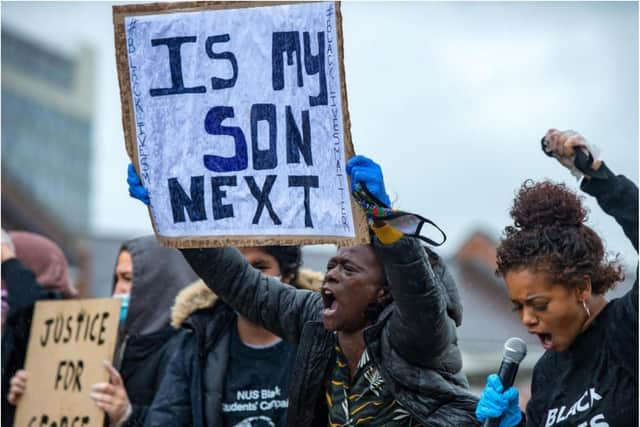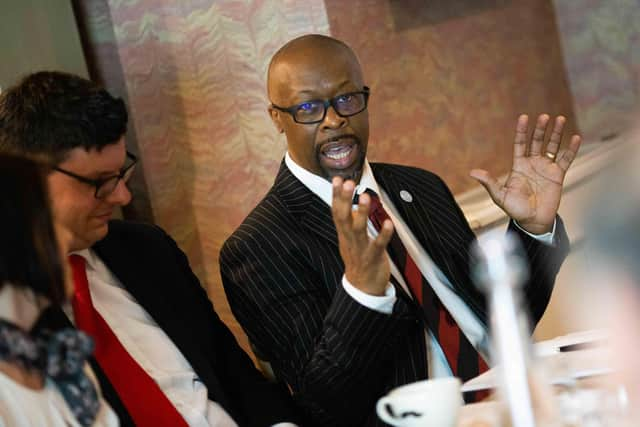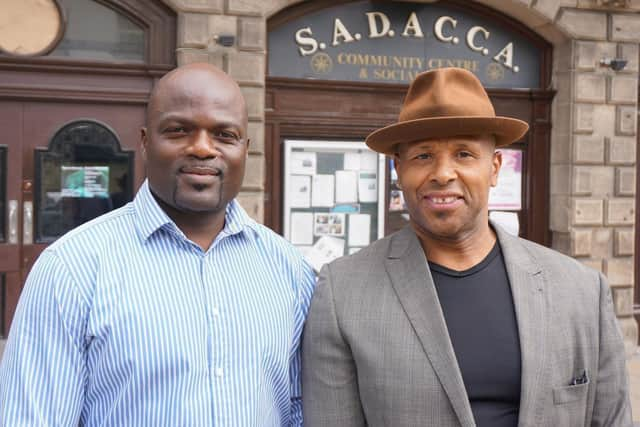Members of Sheffield Race Equality Commission criticise Government report which denies existence of institutional racism in UK
and live on Freeview channel 276
Following increased conversations about racial inequalities in the UK in light of various Black Lives Matter protests last summer, a commission was formed by request of the Prime Minister to look into issues surrounding race.
The 258-page report - titled Commission on Race and Ethnic Disparities: The Report - states that racial disparities do exist in the UK but denies the existence of institutional racism, which is contradictory to what many people in Sheffield and beyond believe.
Advertisement
Hide AdAdvertisement
Hide AdTony Sewell, the chair of the Commission, said in the report: “The impediments and disparities do exist, they are varied, and ironically very few of them are directly to do with racism. Too often ‘racism’ is the catch-all explanation, and can be simply implicitly accepted rather than explicitly examined.”


The Commission argues that the term ‘institutional racism’ should only be applied when “deep-seated racism can be proven on a systemic level and not be used as a general catch-all phrase for any microaggression, witting or unwitting”.
The report concludes that the UK has become a “more open society”, has “come a long way in 50 years”, and “should be regarded as a model for other White-majority countries”.
Members of Sheffield’s Race Equality Commission questioned the report’s findings.
Advertisement
Hide AdAdvertisement
Hide AdKevin Hylton, chair of Sheffield Race Equality Commission and Professor Emeritus of equality and diversity in sport and education at Leeds Beckett University, said: “I must say that when a friend sent me a headline from the Sewell report, I did quickly glance at my watch to check that it wasn’t an April Fool.


“There are too many reports, inquiries and legislation of note over decades that have returned government and academic seals of approval that compel us to be mindful of the insidious processes of institutional racism. It seems that this report is requiring a higher standard of proof that institutional racism (organisational/sectoral) is at play yet seems to accept that structural racism (societal level) is still embedded. Incidentally, both are systemic.
“I am painfully aware of related discussions with Commissioners and evidence presented thus far to the Sheffield Race Equality Commission from individuals and key strategic stakeholders in education, business and employment, crime and justice, civic life and communities, health, and sport and culture whose experiences contradict the Sewell summaries that I have read and heard.
“Tony Sewell’s views from 11 years ago made very similar claims that denied the significance of racism in education. I would point to an expert critique of these by David Gillborn and Chris Vieler-Porter in 2010 (MCB Beyond Race and Multiculturalism). The Sewell report today seems to repeat many of his ideas from 2010.”
Advertisement
Hide AdAdvertisement
Hide AdOlivier Tsemo, CEO of SADACCA - Sheffield and District African and Caribbean Community Association - added: “I strongly disagree with the Government report which underplays the impact of institutional racism in the UK. In fact we are the product of an education system that shows evidence of systemic racism and urgently requires an overhaul of its curriculum to unite the nation.


“The structural inequalities visible in our society, the impact of which is seen at all levels of our daily lives, from local communities to national and global institutions is a reminder that race is a significant determinant for all of us. For instance, consider the racial disparities clearly laid bare through the impact of COVID-19 infections and disease on Black communities.
“At SADACCA we believe that every Muntu or individual has immense personal worth, dignity and purpose. We are committed to working to increase the prosperity of all Bantu or people.”
Yuen Fong Ling, an artist and senior lecturer at Sheffield Hallam University, said: “I'm disappointed by the report, as it echoes the systematic colour blindness by institutions and how it maintains the status quo, and doesn't support the change needed.
Advertisement
Hide AdAdvertisement
Hide Ad“The very nature of structural inequality needs to be turned up-side-down, inside-out, where knowledge and insight is gathered on the ground, and not filtered through these systems and procedures that, ultimately, as we've seen, deny the problem.
“The report gives me fuel to continue to expose these inequalities, empowered by the history, and find the practical steps to make change.”
Sonia Gayle, a trustee at Breast Cancer Now amongst other roles, added: “In positioning the UK as ‘a beacon to the rest of Europe and the world’, the Sewell & Mirza report will likely play well to an overseas audience. Closer to home – when considering the numbers who have been unfairly excluded from education and the boardroom; denied promotion; abused on social media; or lost loved ones as a result of the Covid pandemic, the Windrush scandal, criminal justice treatment or maternity care et al – many will be sceptical, if not highly dismissive.
“I would however urge readers to focus on the report’s positive recommendations, as delivering these should go a long way to help secure the UK’s stated aims of ‘creating a successful multicultural society’. Everyone will have a role to play here and certainly we at the Sheffield Race Equality Commission will be doing our bit, with the support of all Sheffielders, towards helping the City to demonstrate that it is socially just and inclusive.”
Advertisement
Hide AdAdvertisement
Hide AdSheffield City Council launched the independent Race Equality Commission in 2020, focusing on the nature, extent, causes and impacts of racism and race inequality within the city.
The Commission on Race and Ethnic Disparities report is available here.